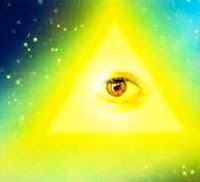 Saint Anselm made his contribution to the philosophical speculation of the concept of God with his ontological argument.
Saint Anselm made his contribution to the philosophical speculation of the concept of God with his ontological argument.He asked us to think in God as the Supreme Being: the most powerful and great being we could possibly imagine.
We will have to reach a point when we have to think about this being as really existing, otherwise we weren’t thinking about the Supreme Being.
And thus we reach the conclusion that the Supreme Being really exists.
In other words: the existence of the Supreme Being is necessary by definition: she cannot not exist.
If the existence of the Supreme Being is necessary, and we admit the possibility of her existence, we should also admit that she really exists.
The ontological argument also teaches us something about the nature of God.
The Supreme Being, in order to be really supreme, must have maxi-properties.
She should be omnipotent, omniscient, omnipresent, omnibenevolent, infinite and perfect.
Here enters the demolition atheist project, that pursuits to establish that the concept of the Supreme Being is self-contradictory:
- Can God create a stone so heavy that even she cannot lift? Any answer we give to this question would indicate that she is not all powerful.
- There is evil in the world, and God cannot avoid it or she doesn’t want to. Thus she is not omnipotent or she is not good.
- If God is omniscient then there is no free will, and if we weren’t created with free will, she is not good.
- Moreover: How can a Perfect Being create an imperfect world?
Etcetera.
If the concept of the Supreme Being is contradictory, logic tells us it’s impossible. And if it’s impossible, she cannot exist.
Atheism is then justified.
Objections
There’s an obvious objection: if thinking about the Supreme Being leads us to logical contradictions, then we weren’t really thinking about the Supreme Being. Our concept of the Supreme Being has to be reformulated. Once we accomplish this reformulation, the existence of the Supreme Being should be considered necessary, and we’ll reach to the conclusion that the Supreme Being really exists.
If an atheists desires to establish with pure logic her atheism, she must not only refute one particular ontological argument, she should demonstrate that a successful reformulation of the ontological argument is impossible.
It is also necessary to analyze the assumptions that lead us to attribute to the Supreme Being her maxi-properties.
If we think about it, identification of Supremacy with Higher Power is not itself obvious, and it can change depending of different cultural approaches.
For anarchists, power is a source of corruption and alienation. And power in maximum grade personified in God directs to maximum corruption. That is why Bakunin said that if God indeed existed, she should be abolished.
Christian tradition itself provides us with reasons to doubt such identification through the divine figure of Christ. What has inspired Christians when they contemplate the Suffering Christ is not his power, but his voluntary weakness.
Similar observations can be made about the qualities of omniscience and omnipresence.
A humanist approach to theology will lead us to doubt the necessity of traditional maxi-properties for the Supreme Being. We can even doubt that the existence of the Supreme Being should be necessary.
The Supremacy concept can be considered a subjective valuation, and therefore not apt to construe an ontological argument.
That doesn’t imply that some particular subjective conception of the Supreme might not be true.
PD.
There’s this book in Spanish that uses paraconsistent logic in order to give a solution to the problem of contradictory attributes of the god of classical theism.
Comments